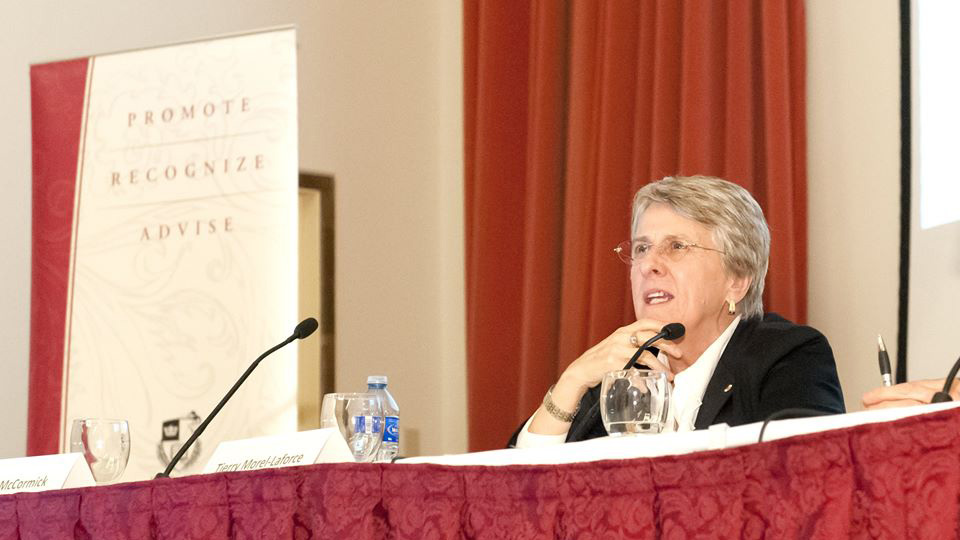 supplied
suppliedWhen Janine Brodie got the call from the Governor General’s office that she’d been named as a member of the Order of Canada, the news came as a shock.
“I couldn’t believe what I was hearing because I had no idea that the nomination was in process,” she said.
The Order of Canada is one of the highest civilian honours in the country, recognizing Canadians from various fields for their accomplishments and contributions to their community. Brodie, a University of Alberta political science professor, is being recognized for her contributions as a scholar of Canadian politics, notably in the areas of social governance and gender politics. Along with Paul Armstrong from the Department of Medicine, Brodie is one of two U of A professors to be appointed to the order. She will be attending a ceremony later this year in Ottawa where she hopes to have her 94-year-old mother in attendance.
Brodie is most well-known work for her work on gender in politics. Her 1985 book, Women and Politics in Canada, was the first book in the literature to discuss the topic of women in Canadian politics, and was instrumental in having gender recognized as an area of further study in the Canadian political science community.
“It’s hard to believe that that’s exactly the case,” she said. “But the issue of gender was not seen as political… the absolute of absence of women in electoral institutions, particularly parliament, didn’t seem to raise any kind of question that there was an issue of inclusion.”
Brodie completed her undergraduate and master’s degrees at the University of Windsor before earning her PhD at Carleton University in 1981. Reflecting on her time studying political science, Brodie said there weren’t a lot of women in the discipline and that she was often one of two women in the department when she worked at Queen’s and York University before arriving at the U of A in 1997.
“Political science was absolutely male-dominated, and that’s one of the changes that has occurred in the two or three decades is that those numbers have evened up,” she said. “But I think certainly back then it was not uncommon at all to have, especially in smaller departments, where the whole faculty would be male, and the whole faculty would be white.”
Brodie joined the U of A as chair of the Department of Political Science in 1997, a time of high turnover in the department due to a number of retirements. It was an opportunity for Brodie to build the institution as she played a leadership role in increasing gender representation in the department’s staff. She said part of the reason the discipline has become less male-dominated is the hard work within institutions.
“I was part of those battles but I certainly wasn’t the only one,” she said. “A lot of it was struggles not only in academic institutions but all kinds of different institutions to improve the representation of women.”
As for advice, Brodie said students should pursue the subject that speaks to them as opposed to letting the job market determine it for them. She said that her own experience is an example of that.
“When I was an undergraduate, I wasn’t a stellar undergraduate but I loved political science and so I loaded up my courses in political science because for some reason it just excited me,” she said. “And the more courses I took the more I loved it.”




